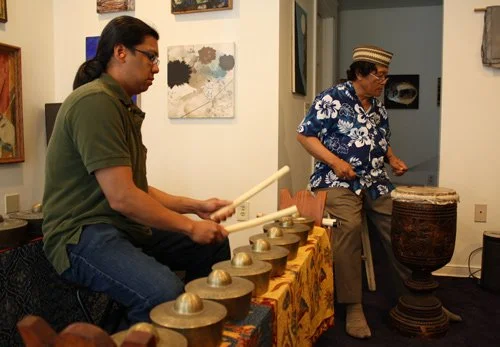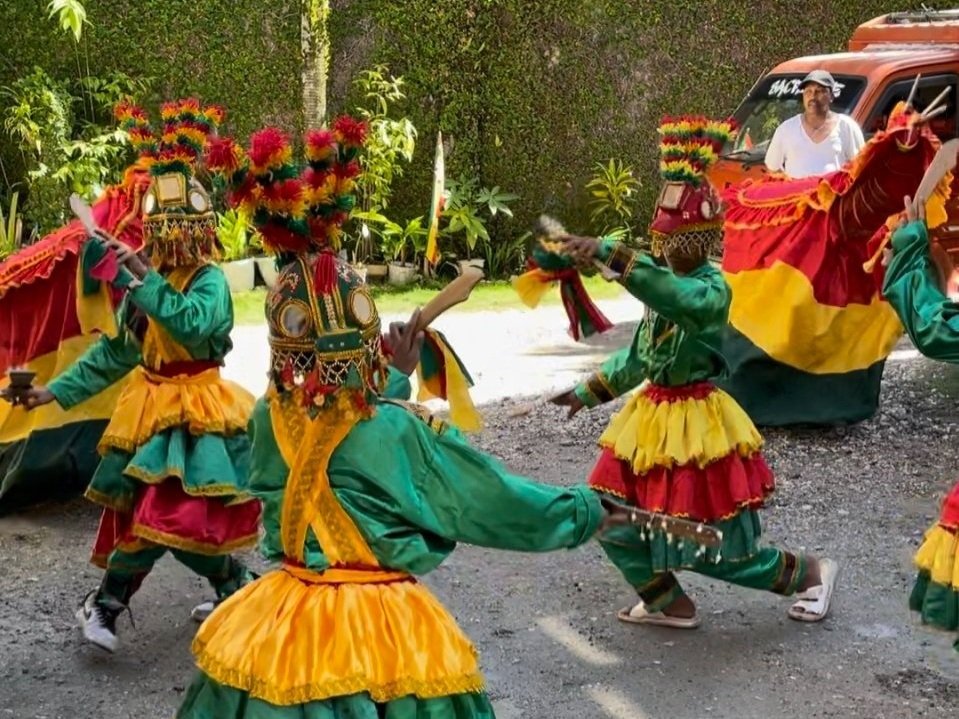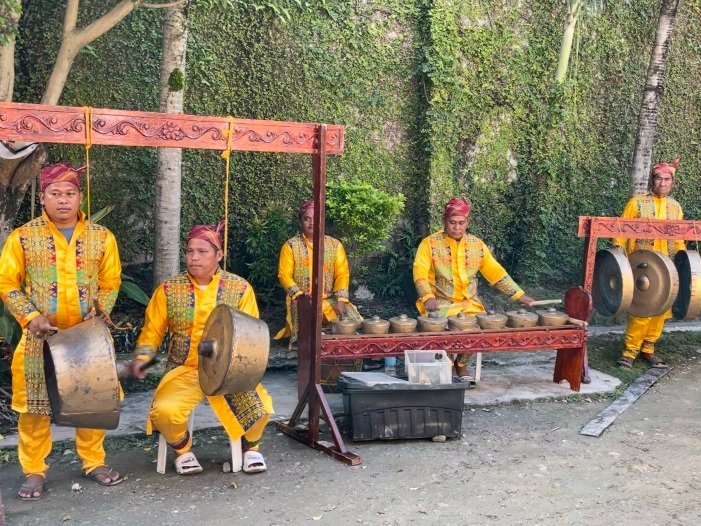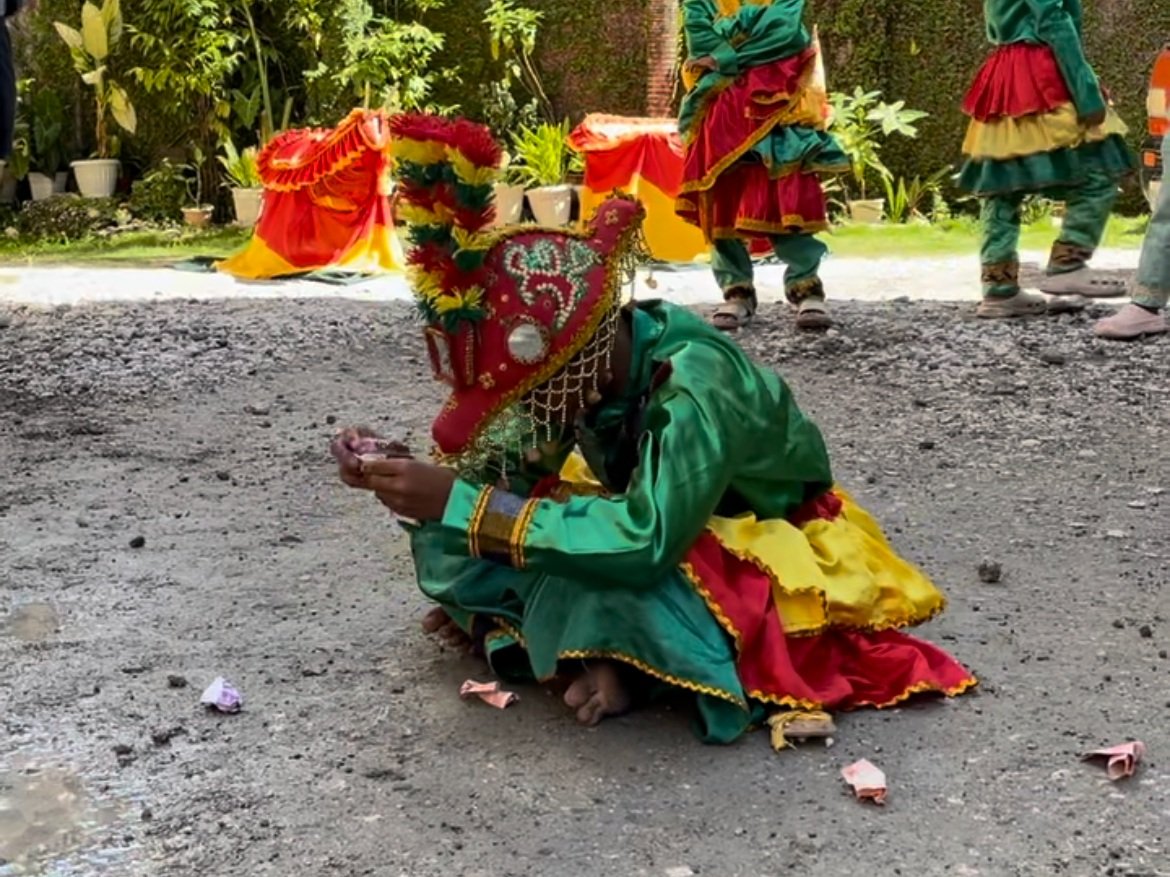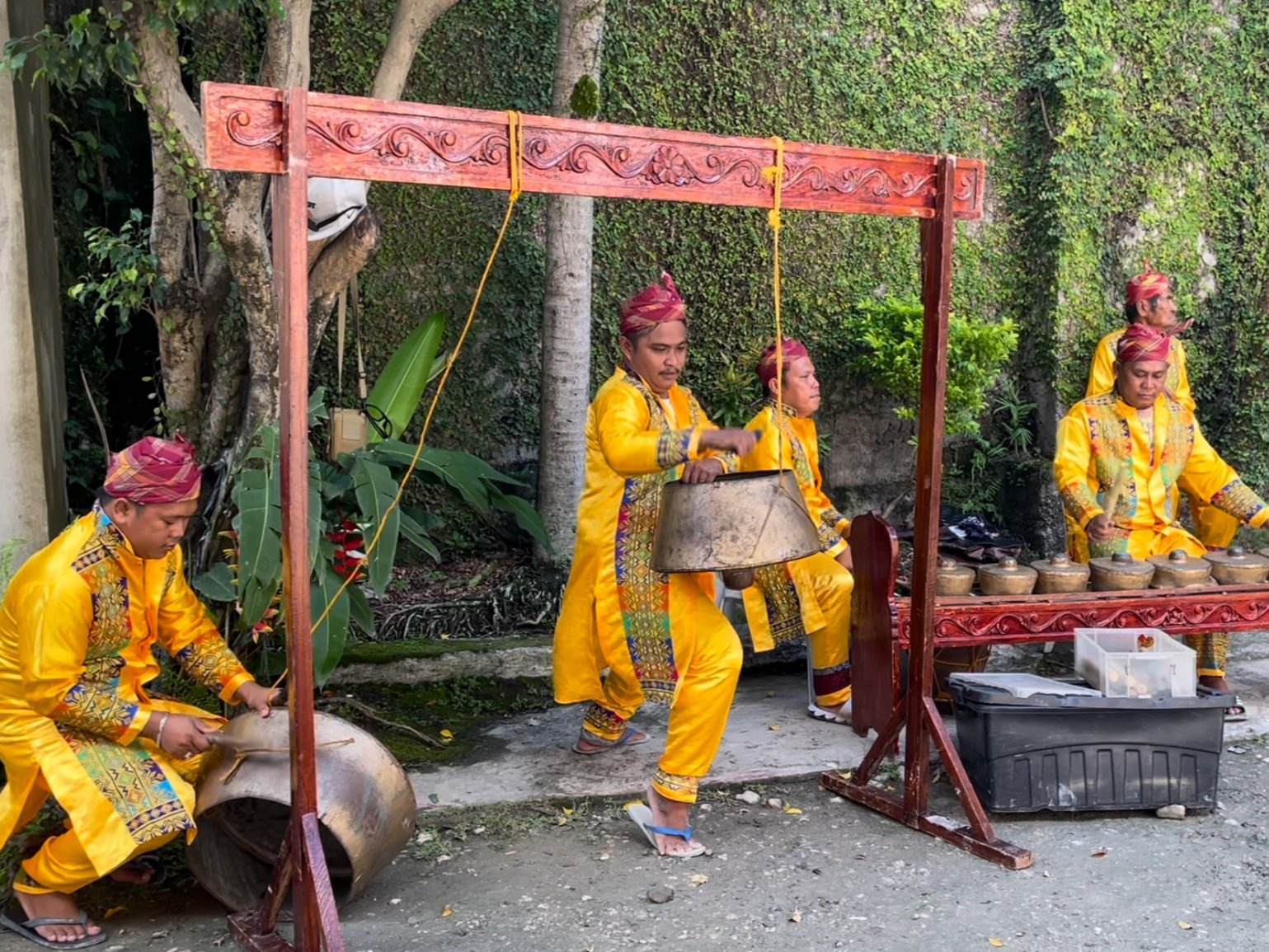Memories of Mindanao, Part 7
By Conrad J. Benedicto
Conrad with kulintang teacher, Danongan Kalanduyan.
“One of these days I will take you back to Mindanao so we can play together in my hometown.” My long-time kulintang teacher, Danongan Kalanduyan, often expressed this sentiment to me during the latter half of the precious time we shared. After years of missed opportunities to fulfill this dream, Danny passed away in 2016. Failing to accompany him on a musical journey home remains one of the biggest regrets of my life. I was apprehensive the night before our group’s journey to Cotabato, afraid of how grief might express itself when I finally stepped foot near Danny’s origin, without him.
But what I encountered in Cotabato was not grief. It was joy, celebration, inspiration, and peace. There was no time for sorrow as we were regaled with music and dance before we could even check into our lodging. The moment our vans pulled into the narrow street leading to our motel, Sagayan Dancers, those lithe festival warriors who twirl, shimmy, and leap with the tambor (marching drum) while shaking their beaded swords and shields appeared, colorful skirts of green, yellow and red providing a graceful contrast to their athletic movement. It is customary to throw money at their feet and I did so enthusiastically.
“They played differently from the way Danny taught me. Their melodic accents and sticking patterns had a Cotabato swing I had never heard before.”
The award winning Mamayug Sa Maguidanao kulintang ensemble also greeted us with spirited renditions of Binalig and Kangungudan, the more rhythmic “new” style of kulintang which can be played at supersonic speeds. They played differently from the way Danny taught me. Their melodic accents and sticking patterns had a Cotabato swing I had never heard before. When the band encouraged me to play, I was still able to identify the endings and stop at the same exact moment as everyone else, but the melodic progressions felt fresh and unique. The tradition is so vibrant that Danny’s pieces felt like classic 70’s or 80’s sounds compared to what I was hearing. Not only is the music I learned from Danny but one lineage within a sprawling genealogy, the entire tree itself has evolved.
Is there value in having “preserved” a specific kulintang sound and style that was brought to the U.S. decades ago? Yes. It continues to compel my heart and spirit. And it beautifully allowed me and fellow kulintang musicians on the tour to connect without words with our hosts. But I honestly think we could and should do more with the artistic traditions we are gifted than just parroting what we learn. Pilipino Americans are a distinct and diverse community too, with a long and ongoing history that is fertile soil for its own artistic traditions. I play and teach the 70’s and 80’s hits Danny taught me with fidelity and love, but it is 2023 in America too and our story on this land is deep and enduring enough to birth its own songs.
Conrad J. Benedicto
A teacher, author, and kulintang musician who studied with Master Danongan Kalanduyan from 1997 to 2016. He was Master Kalanduyan’s apprentice within the Alliance for California Traditional Arts’ Apprenticeship Program in 2007 and again in 2013. He founded and leads the Kulintang band, Kulitang Dialect, and has performed at the Filipino American International Book Fest Gala, Gongster’s Paradise Kulintang Festival, SF Parol Lantern Festival, and more. He has received grants for his music from the San Francisco Arts Commission and Zellerbach Family Foundation. He teaches social studies, environmental education, and kulintang music at Balboa High School in San Francisco.
Publications:
Musalaya’s Gift, Fantasy Novel
The Warriors of Dagad Pass by Bumbakal Saksi, Musalaya’s Gift Graphic Companion Book

